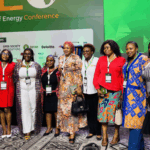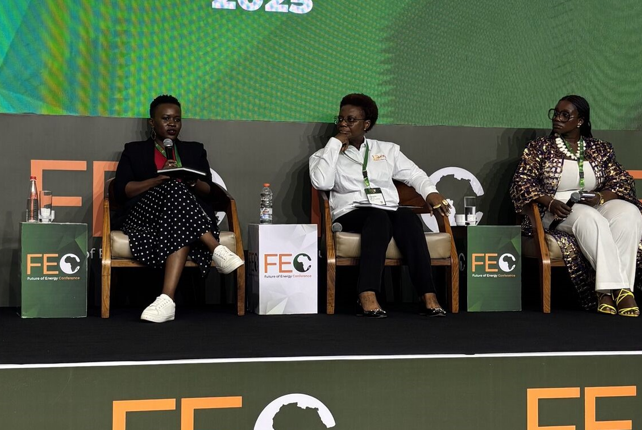
President of Women In Mining Ghana (WIM, Ghana), Georgette Barnes, has noted that women in Ghana’s mining sector stand to boost their earnings and business prospects by adopting responsible mining practices and clean energy.
Speaking as a panelist on Day 2 of the Future of Energy Conference 2025 at the Labadi Beach Hotel in Accra, the mining executive outlined a vision where sustainable methods could unlock significant economic benefits for female miners.
“Women and local communities in mining areas need to be linked to data sources, large-scale mines, and supplier development programs so they can access finance, employment, and business opportunities,” Barnes stated. This forward-looking approach positions sustainable practices as a direct pathway to increased profitability, aligning with the conference’s focus on future energy solutions.
The conference was organised by the Africa Centre for Energy Policy (ACEP), towards examining Africa’s financing needs and strategic pathways to unlock the investments needed to fuel energy access and drive economic transformation.

The WIM President underscored significant hurdles currently faced by women in the sector, citing low levels of financial literacy, limited access to technology and information and a lack of formalisation among many female business owners, particularly in rural areas, as factors limiting women’s access to finance. According to her, lenders generally view mining as high risk, and without clear production data, such as projected output, it becomes nearly impossible to access credit.
On the back of this, the mining executive advocated for the formalisation of existing community-based schemes, like Ghana’s “susu” programs, to help women build a track record that lenders can trust. She cautioned, however, that these schemes alone “are not enough” to expand businesses at scale.
Beyond formalisation, Barnes urged stronger links between women miners and geological surveys, whose data is often required by banks. She also pressed large-scale mining firms to support women’s groups and prioritise local hiring. “If our daughters are hired by large scale mines, we have access to system finance to support the businesses,” she noted.
Currently, many women miners depend on “sponsors” who fund production but then deny them fair prices for their products. To counter this, Barnes pushed for supplier development programs across the value chain so that those doing the initial labor benefit fairly.
She further advised women miners to strengthen cooperation and collective bargaining with suppliers and service providers, especially when traditional bank financing is elusive. “If they were cooperative, they would have a stronger voice and better bargaining power,” she observed.
These insights, gleaned from a World Bank-funded “responsible mining project” with women miners in northern Ghana, illustrate both the challenges and potential solutions for empowering women in a crucial economic sector, with a clear eye on sustainable and profitable practices for the future.
The Conference brought together government agencies, civil society organisations, private sector players, and development partners from across Africa to deliberate on practical solutions for a sustainable and equitable energy future.